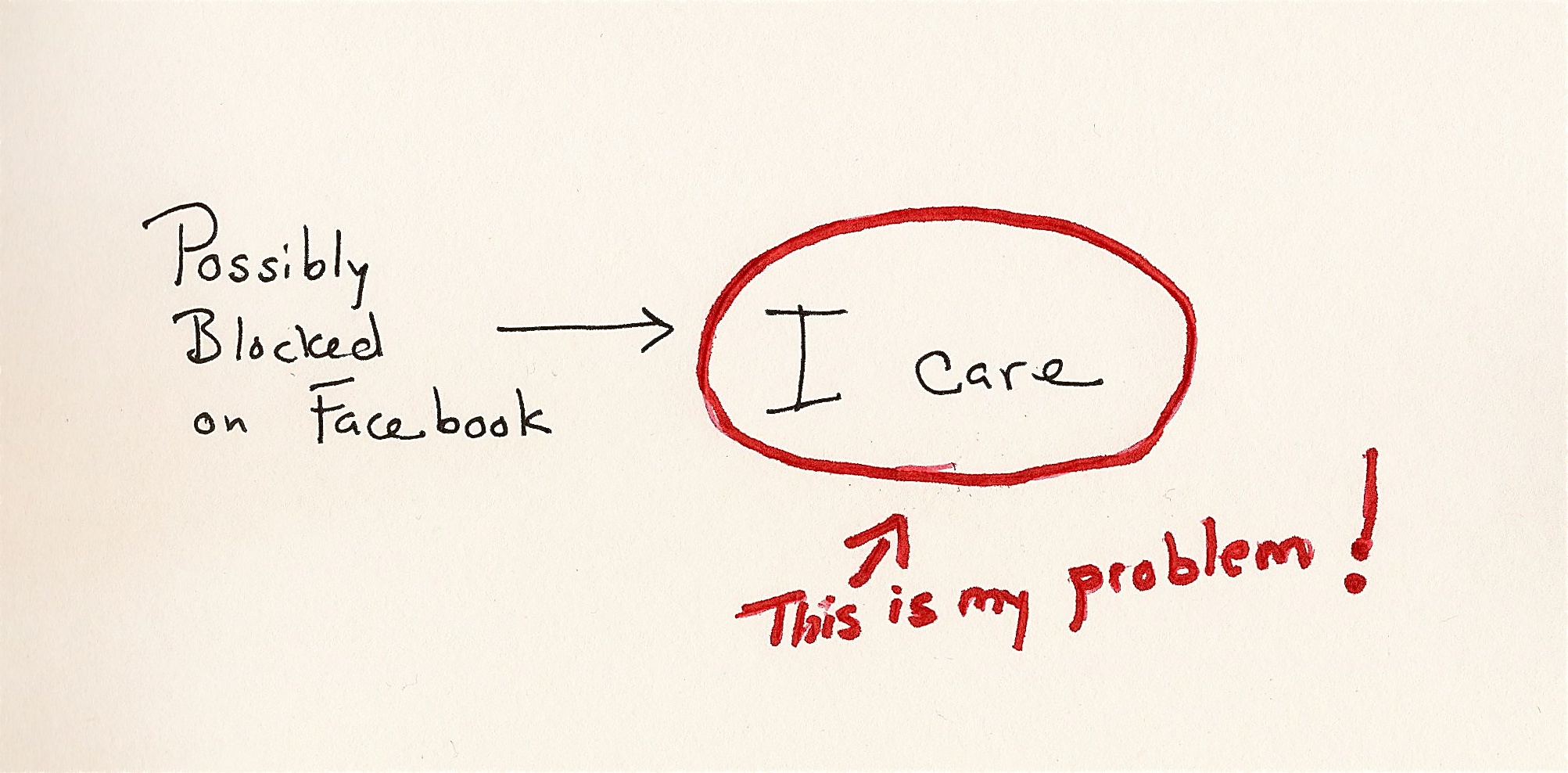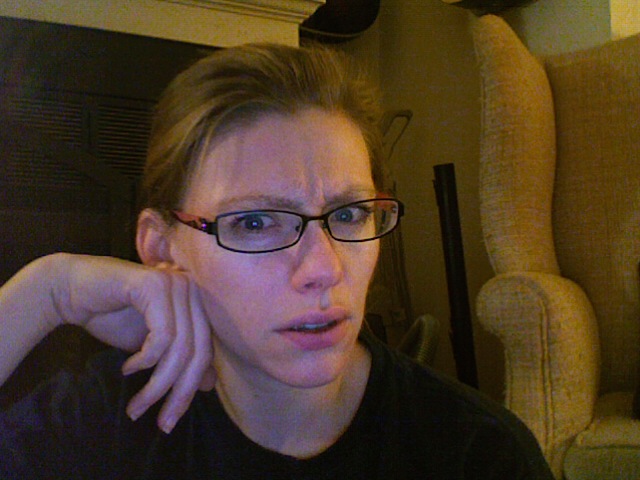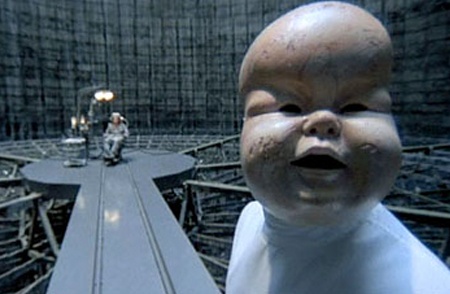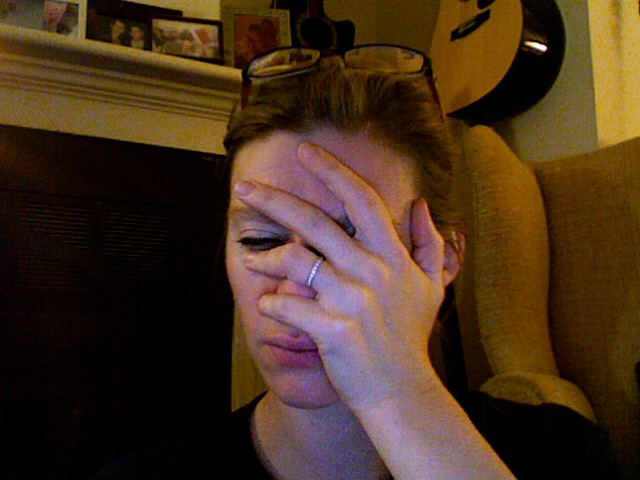Recently I’ve begun to suspect that I’ve been rejected.
Someone may have blocked me on Facebook. And not just one someone, but maybe as many as five someones. Maybe even more. And it’s eating my lunch. But my real problem is not that five people may have blocked me on Facebook. I’m irritated because I’m bugged by being blocked on Facebook. You follow? No? I’ll draw a diagram. Here.
Why would I care? Someone blocked me on Facebook. Big deal. This shouldn’t be a problem for me, because it isn’t a problem.
First of all, if out of 450 “friends,” five have blocked me, that’s a pretty decent rate of acceptance versus rejection. Second of all, and more importantly, I don’t interact with the suspected blockers in real life. I expect to see a couple of them at assorted reunions, probably in the very distant future. The others I may never see, ever, again.
Some of these blockages are even mutual. I can think of at least one alleged blocker whose posts I’ve had hidden for a year. It wasn’t personal; I just didn’t want to see the graphic updates about the contents of her child’s diapers. Evidently she was equally unimpressed by all my clever status updates and scintillating blog posts. And we aren’t actually friends in real life. We never were. If you look at it rationally, our Facebook break-up is a win-win. But in the self-centered, personal propaganda world of Facebook, where everyone is your “friend” and people are unable to “dislike” your photos, updates or relationships, being blocked comes as somewhat of a shock.
Why should that be? Most of us deal with rejection in the real world all the time. We interview for, but don’t get jobs. We don’t get complimented when we think we deserve it. We say hello to people on the street and they don’t say hello back. People give us the finger in traffic. And although these daily rejections are awkward at best and painful at worst, we deal with them.
I’m 33. Like most people my age, I’ve watched friendships crumble, relationships fall apart, been passed over for promotions. As a writer, I’ve gotten good at being rejected by magazines and journals. When I worked as a journalist, I got used to people being furious at or dismissive of me. But on Facebook rejection brings me back to middle school.
“They don’t like you,” says the little voice in my brain, the one I heard all the time when I was 12 years old. “They don’t like you and they don’t ‘like’ you.”
This voice is not my friend. It used to hear classmates laughing a few tables over in the cafeteria and convince me that those kids were laughing at me.
“I thought you were dead,” I say to the voice. “I thought I left your mangled corpse on the streets of Spain in 1999.”
“You’re talking to yourself,” says the voice. “No wonder people don’t like you. Or ‘like’ you.”
And the cycle begins anew.
So really, what’s the deal with Facebook and rejection? My only guess is that our Facebook profiles are such manicured, Photoshopped versions of who we are. We post the most attractive or amusing photos of ourselves as profile shots, or else we post pictures of the things we want to show off: our kids, our wedding photos, our pets, our flower gardens, our priceless collections of stamps or brass military buttons. Our statuses are little flags we wave for attention. Our interests are carefully edited. And when someone rejects all that, when they block you, that can seem like a rejection of your highest self.
Except it’s not. It’s a rejection of your own personal propaganda. And if that bothers you, you probably need to get over yourself. I know I do.






